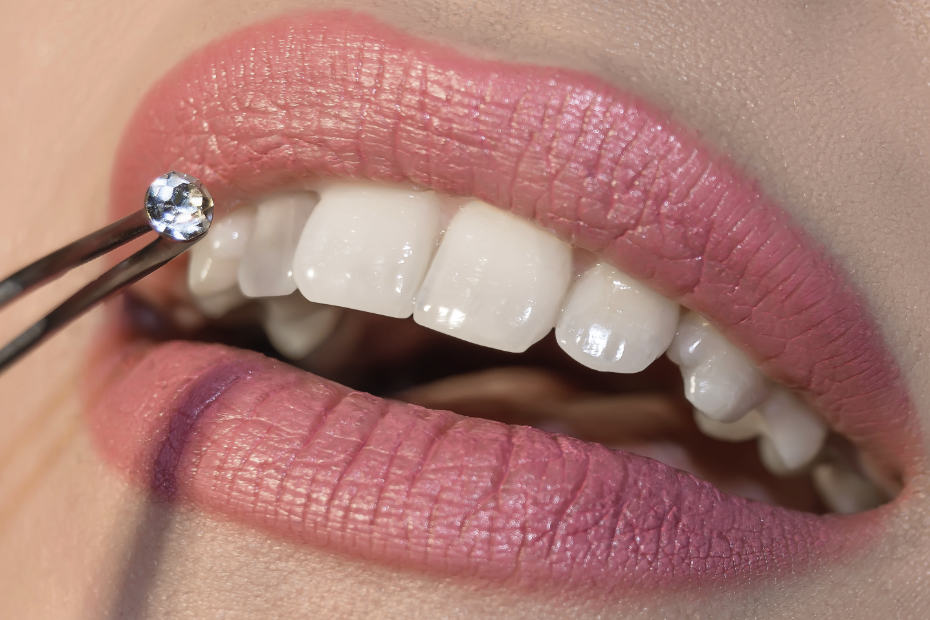As 2024 continues to gather trends, one of the hottest ones that have become a popular fashion statement are tooth gems; however, this is no new trend. These small, sparkly adornments add some bling to your smile, but despite this, it’s essential to consider the potential risks associated with them. In this blog, we’ll dive into whether tooth gems are actually safe for you and your dental health.
What Are Tooth Gems?
Dentists bond tooth gems using dental adhesive, offering them in various shapes, sizes, and colours. The procedure is typically quick, taking only a few minutes to apply. As the process does not involve drilling or altering the tooth’s structure, many people assume that tooth gems are harmless.
Are Tooth Gems Safe?
Tooth gems can be safe when applied correctly by a professional, but they still carry several potential risks:
- Enamel Damage: The adhesive used to bond the gem to your tooth can weaken your enamel over time. Enamel is the protective outer layer of your teeth, and if it becomes damaged, it does not regenerate. Weakened enamel can make your teeth more susceptible to decay, sensitivity, and staining, causing further dental issues in the future.
- Plaque Buildup: Tooth gems can create small gaps where plaque and bacteria can accumulate. These bacteria use the sugars from the plaque around the gems and release toxins as a consequence. Failing to clean tooth gems properly can lead to cavities, gum disease, and bad breath. Brushing and flossing can therefore be more challenging around the gem, raising the risk of dental hygiene problems.
- Gum Irritation: If the gem is placed too close to the gumline, it may cause irritation or inflammation. In some cases, this can cause gum recession, exposing tooth roots and increasing the risk of sensitivity and decay.
- Potential Allergic Reactions: Depending on the material of the gem and the adhesive, some may have allergic reactions to this, resulting in discomfort, swelling, or even infection in severe cases.
- Risk of Ingestion: The gems are generally quite small, so if they become loose, someone could swallow them accidentally. While this is rare, it’s something to be aware of, especially if the gem lacks a secure bond.
How To Minimise Any Attached Risks
If you’re choosing to get a tooth gem, these steps minimise the potential risks that come with this fashion statement:
- Find A Professional: Go to a licensed dental professional to ensure that the right adhesive is used and to avoid various dental problems.
- Maintain Good Oral Hygiene: Brush and floss diligently, pay extra attention to the area around the gem, use interspace brushes, and consider using a mouthwash to help reduce plaque buildup.
- Regular Dental Checkups: Visit your dentist regularly to monitor the condition of your tooth and gem, as your dentist can check for early signs of decay or other issues and remove the gem safely if necessary.
When To Avoid Tooth Gems
Tooth gems may not be suitable for those with compromised enamel, gum disease, or a history of cavities. Additionally, if you’re prone to allergies, you might want to reconsider applying foreign materials to your teeth.
Tooth gems are a fun and fashionable way to express yourself, but they’re not without potential risks. While they may not be inherently bad for your teeth, improper application or poor aftercare can lead to significant dental issues; therefore, before you decide to get a tooth gem, consider the cons and find a qualified professional to get this done. If you or someone you know is looking to book an appointment with our professional and friendly team, please don’t hesitate to contact us today!

